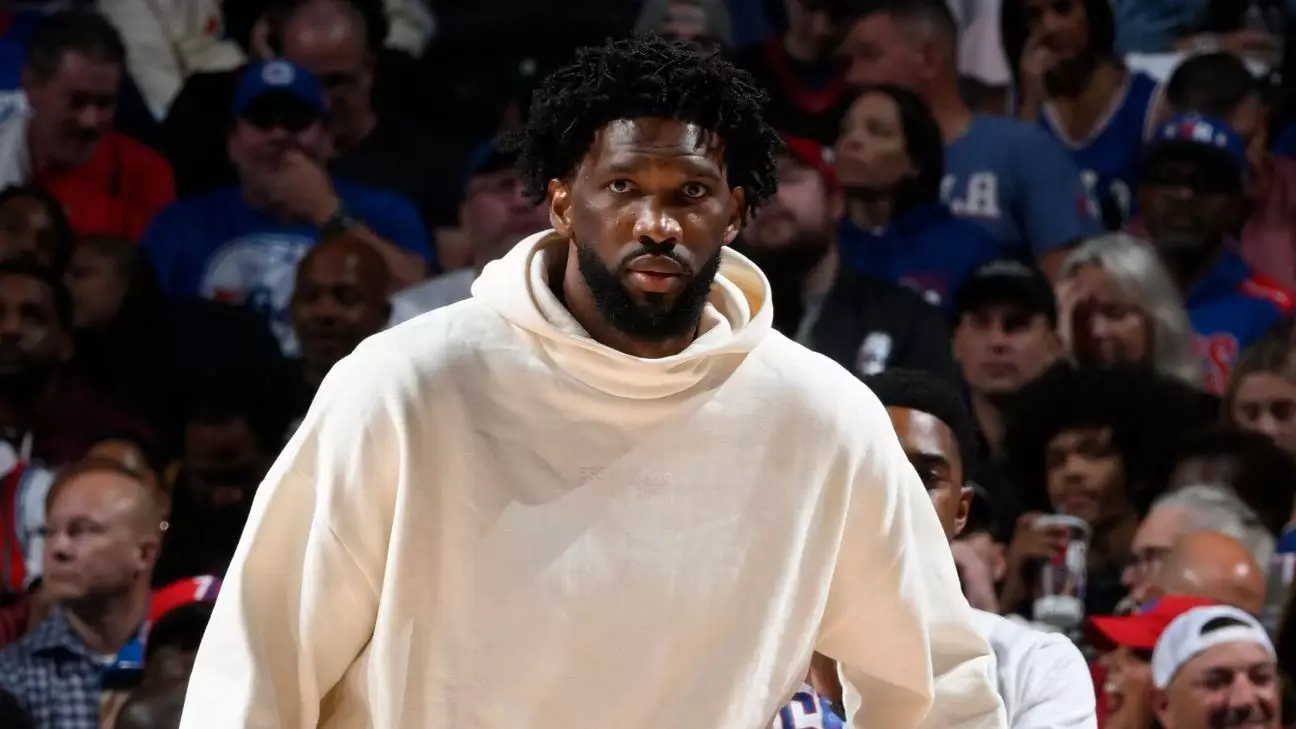In a recent shocking incident following the Philadelphia 76ers’ 124-107 defeat to the Memphis Grizzlies, superstar Joel Embiid found himself embroiled in a heated confrontation with Philadelphia Inquirer columnist Marcus Hayes. The locker room, which is often a space for reflection and camaraderie after a challenging game, turned into a battleground where emotions erupted and lines were crossed. This altercation not only underscored the fragile relationship between athletes and the media but also revealed a deeper narrative about Embiid’s personal struggles and his response to scrutiny.
The catalyst for the altercation was a column penned by Hayes, in which he brought up not only Embiid’s difficulties with maintaining his physical shape but also the deeply personal tragedy of his late brother and son, both of whom share the name Arthur. In an environment where athletes constantly navigate the pressures of public opinion, Hayes’ comments crossed an ethical line that sparked Embiid’s explosive response. His confrontation with the columnist was laden with emotion, where he made it clear that certain subjects, particularly those involving family tragedies, were off-limits. The severity of his reaction highlights just how personal such criticism can be for public figures like Embiid, revealing the intersection of personal grief and professional expectations.
While the media plays a crucial role in shaping narratives around athletes, the situation underscores the delicate balance required when covering their lives. In recent years, there has been a rising consciousness around the psychological toll that media scrutiny can have on players, and this incident illustrates the reality that athletes are not just commodities; they are human beings grappling with loss and public pressure. Hayes, in his role as a journalist, perhaps underestimated the weight of his words, prompting an intense confrontation that raises questions about journalistic responsibility and discretion.
Adding another layer of complexity to this incident is Embiid’s ongoing battle with injuries, which has severely limited his performance on the court. Missing five consecutive games due to left knee management, Embiid’s frustration is palpable. The assumption that he does not want to play is particularly galling for him, as he has a history of pushing through injuries, even risking his health for the sake of his team and city. He conveyed this sentiment in a recent statement, passionately defending his commitment to the game and expressing how he has “done way too much for this city” to warrant such claims. His dedication, evidenced by past sacrifices like returning early from surgeries, deserves acknowledgment beyond mere statistics.
In the aftermath of the locker room altercation, the 76ers organization, alongside the NBA, has initiated investigative efforts. Team president Daryl Morey publicly addressed the incident, affirming that they take such matters seriously. The need for investigation raises questions about how organizations manage off-the-court issues that can compromise team dynamics and public perception. As players navigate the complexities of their roles in the media landscape, the sports world must also reckon with the consequences of how players’ actions are reported and interpreted.
Ultimately, the incident serves as a poignant reminder that athletes are human beings who experience grief, frustration, and vulnerability just like anyone else. Embiid’s emotional outburst is not merely a reflection of anger; it encapsulates the struggle of living in the public eye while managing profound personal challenges. At its core, the confrontation highlights the need for empathy on both sides—the athletes who share their lives with the public and the media that reports on them. As we consume sports journalism, we must remember to approach it with sensitivity, acknowledging the human experiences that underpin the performances we so passionately follow.

